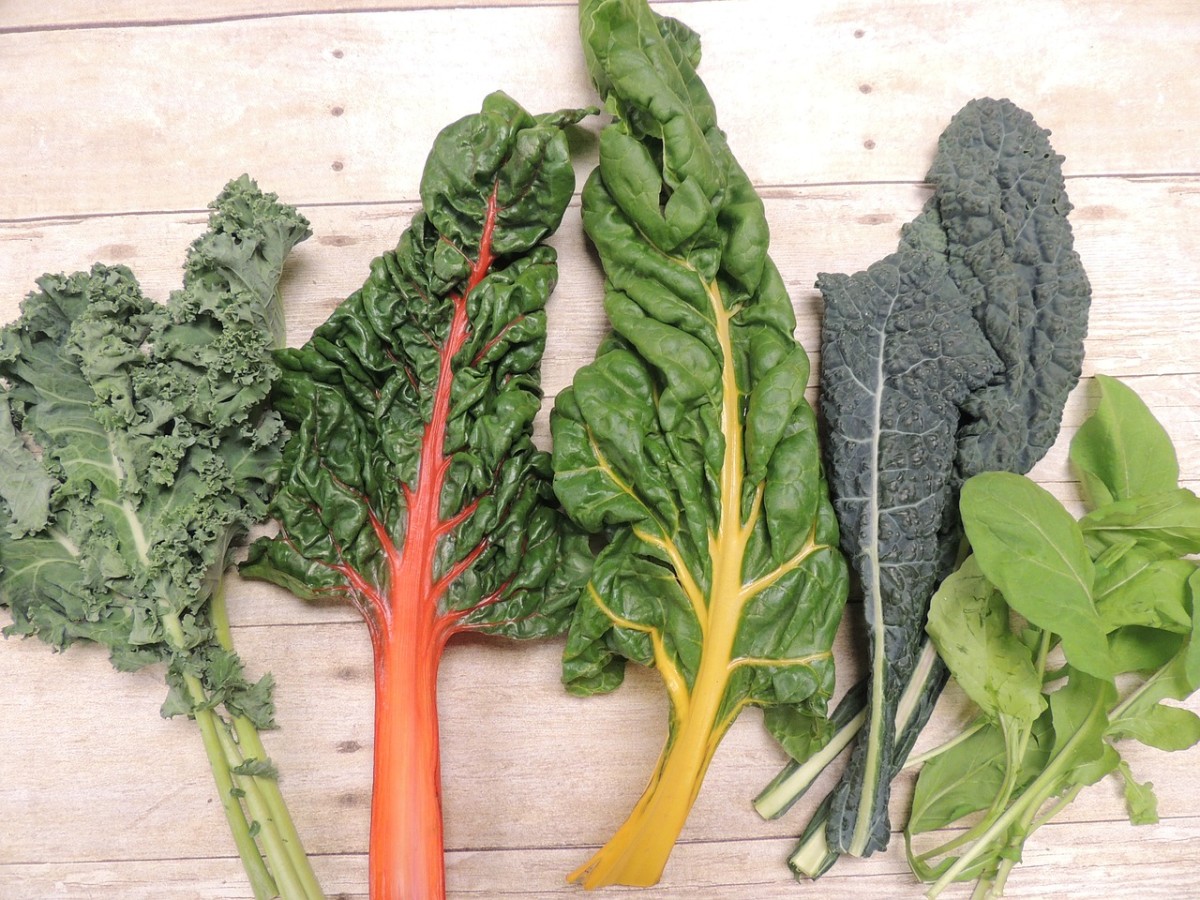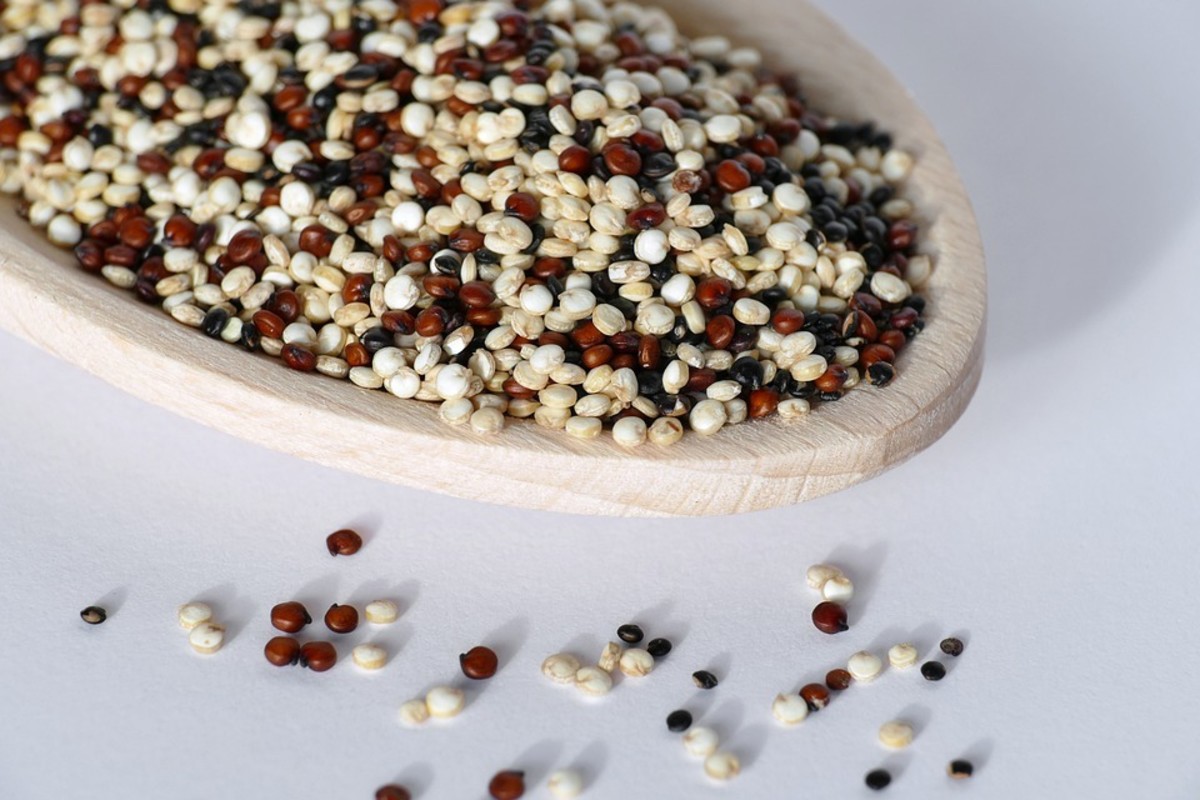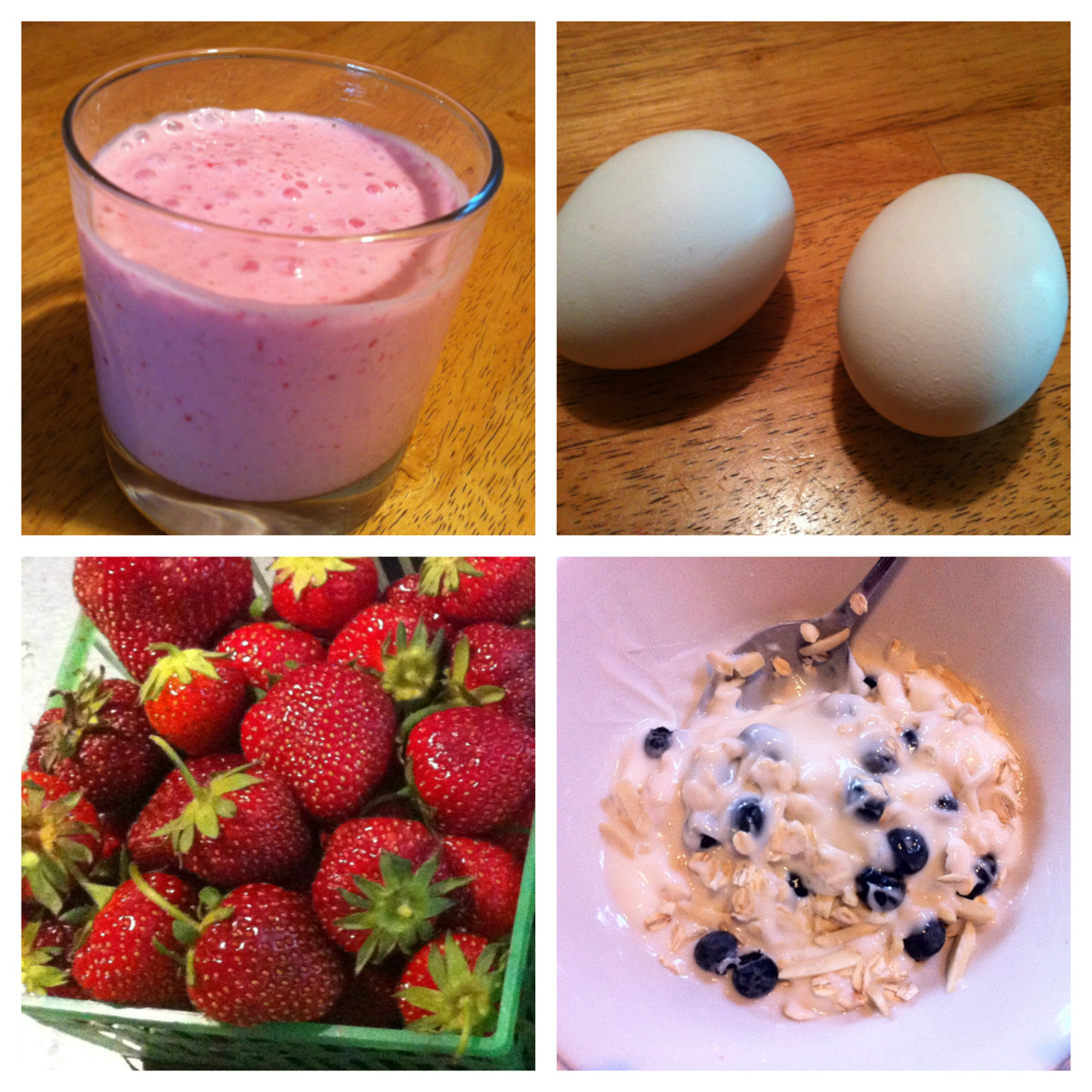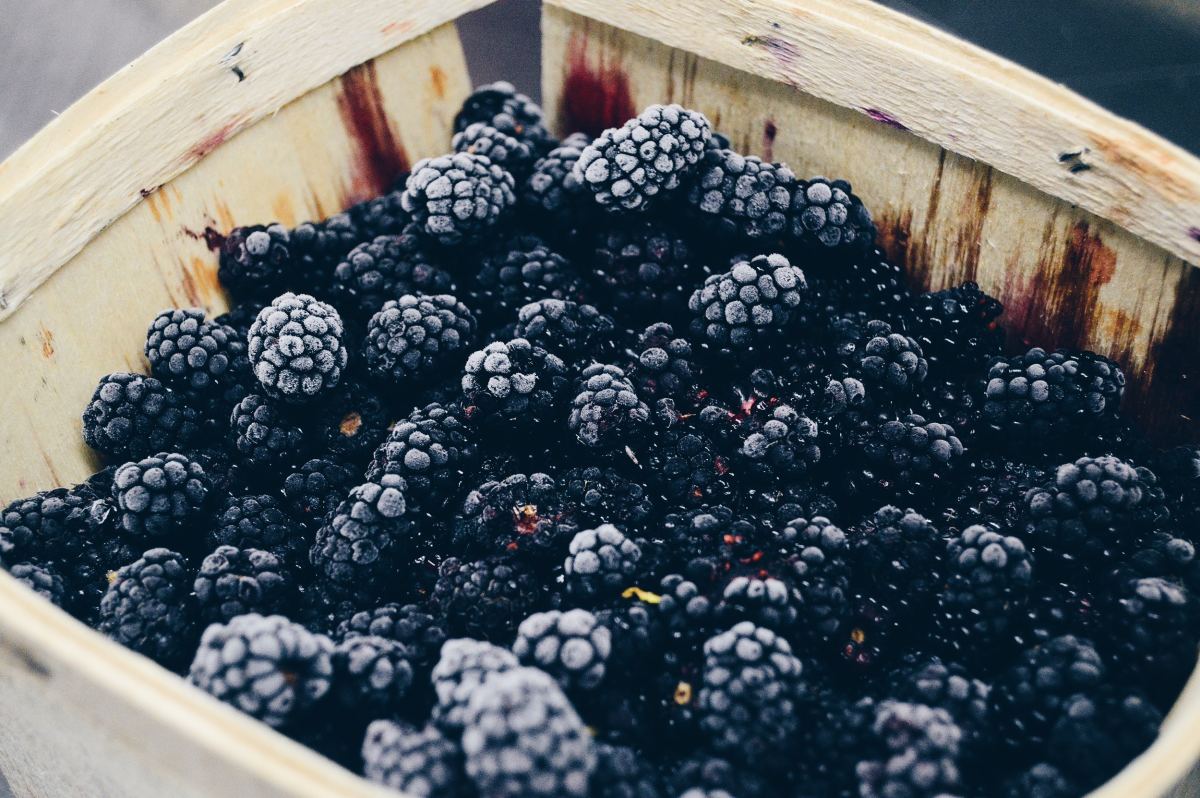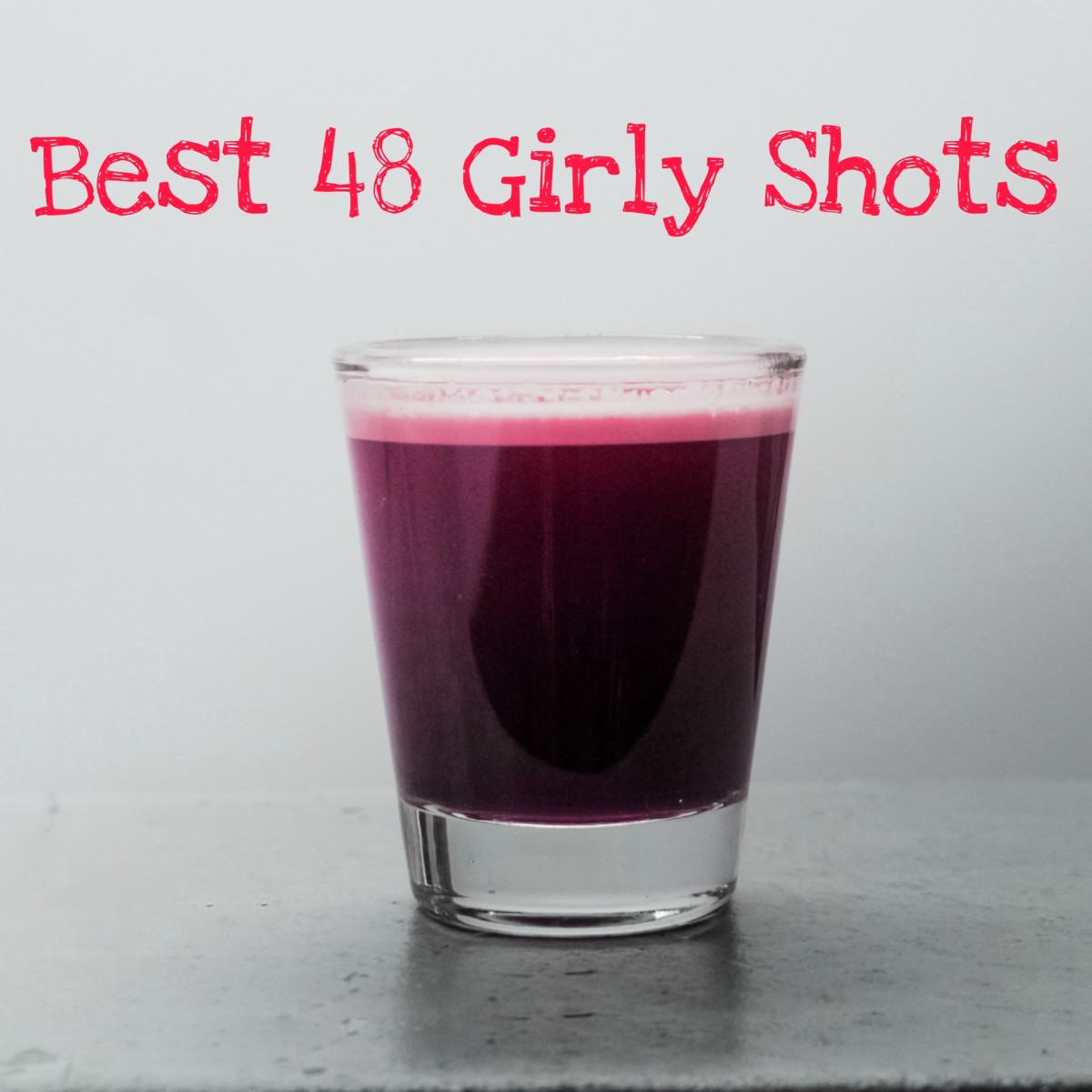A Healthy Breakfast
Breakfast is the most important meal of the day because it supplies your body with fuel after a night of fasting during sleep. Some people just grab a muffin and a coffee and go, which is not all that healthy.
Because there is so much conflicting health and nutritional information out there, it is difficult to even know what is considered a healthy breakfast. Take ake a look at the below breakfast which consists of one fried egg and kale over some whole grain quinoa. Add some olives and avocado. And finish off with green tea.
A Healthy Breakfast Meal
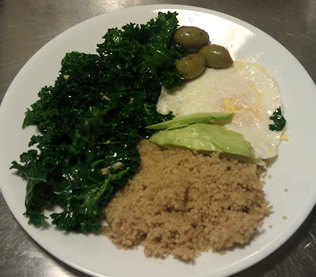
The Anatomy of a Healthy Meal
As Michael Pollen summarized in his book In the Defense of Food, we should be "Eating Food. Not too much. Mostly plants."
Therefore half or more of our plate should be composed of vegetables and fruits. In our meal, half our plate is kale. And avocado is the fruit that brings our meal to be over 50% in vegetables and fruits. It is preferable to have more vegetables than fruits, since fruits has a little bit more sugar. It is best to avoid sugar because sugar is unhealthy.
Both vegetables and fruits are carbohydrates, which eventually turned into glucose sugar. The glycemic index of a carbohydrate tells you how quickly it gets converted into glucose. In general, vegetable has a lower glycemic index than fruits. You want to strive to eat low glycemic carbohydrates rather than high glycemic ones.
Carbohydrates from vegetables are perfectly fine. The moderately low carb type diets (for example the Paleo diet) will say that you can eat as much vegetables as you want.
Kale Among the Most Nutritious Vegetable
Kale is one of the most nutritious vegetable. It is both a dark leafy green vegetable and cruciferous vegetable.
It is very nutritionally dense with an ANDI (Aggregrate Nutrient Density Index) score of 1000 -- 1000 being the highest. It contains vitamin K, vitamin A, vitamin C, magnesium, B6, folate, lutein, zeaxanthin. It is anti-inflammatory and has anti-oxidant properties. Kale even helps detox mercury.
High consumption of mushrooms and dark leafy green vegetables is associated with reduced risk of cancer. Kale is no exception. It contains kaempferol which may reduce risk of certain cancers.
So yes, kale is definately healthy.
Depends on How You Cook It
But it also depends on how you prepare it. If you overcook kale, it starts destroying some of its healthful properties. I like to do a quick saute with coconut oil as describe in my article on how to cook kale.
Although olive oil is perfectly fine and healthy by itself cold on top of the kale or on salad, it is best not to heat the olive oil or to cook with it. The oil can get oxidized and damaged in high heat. Although with the quick cook of the kale, it might be okay.
But do not use vegetable oils like corn, sunflower, and safflower oils to cook. If you do, then it becomes unhealthy. The best oil to use is coconut oil.
If you don't want oil, you can use the wet sauté method of frying with water instead. It is best to use stainless steel wok and avoid non-stick Telflon. Read more on how to cook kale.
Sautéing the kale with garlic would give it some extra flavor. Plus garlic is one of the most healthy herbs. Garlic can be eaten raw or partially cooked, so don't worry if it comes out of the pan partially cooked with the kale.
It also depends on what type of cookware you use. Use stainless steel. If you use non-stick Teflon, then it is unhealthy.
Eggs for Protien
Eggs are a good source of protein and eggs contain many healthy nutrients. Note that the egg contains all the vital ingredients needed to form a chicken. You should have some protein in every meal.
Again, fry the egg in a stainless steel pan using coconut oil which can withstand higher heats. Because of the higher temperature needed to fry the egg, olive oil would not be suitable since the oil is easily damaged by heat. Wet saute may work with vegetables, but would not work quite so well trying to fry an egg.
To make the meal even healthier, avoid frying. Instead, pouch the egg in boiling water so that the yolk just barely cooked and is soft. You don't want to over-expose the yolk to heat and oxidize its cholesterol. It can be as simple as cracking an egg into boiling water. That way you don't have to use oil.
Eggs in moderation (such as one a day) is generally healthy for most people. Unless of course, you have an allergy to eggs which some people and children do. Then it would not be wise to eat eggs.
Some people say eggs are not healthy due to its high cholesterol. Although dietary cholesterol from eggs are not a significant factor in heart disease. Nevertheless, if you have extremely high cholesterol, you might want to limit.
Another reason why one might not want to over consume eggs is it high omega-6 to omega-3 ratio. Western diet is too high in inflammatory omega-6 and we are lacking in omega-3.
Avocado - the good fats
However, in order for the body to absorb fat-soluable vitamins (like the vitamin A and K in the kale), it needs some fats. Here we have healthy fats from olives and avocados. You can also add more olive oil or even butter from pasture raised cows to the kale.
The body needs some amounts of good fats every day. This is especially true for the brain, which is about 60% fat.
Avocados and olives are two great choices. Both are great sources of monounsaturated fats. Three quarters of the fats in olives are the beneficial oleic acid. Both are anti-inflammatory as well as have antioxidant capabilities. Both have the ability to improve the LDL/HDL cholesterol profile.
I wrote about the health benefits of avocados and their anti-inflammatory and anti-oxidant properties. They are a rich source of vitamin C, vitamin E, and vitamin K.
Most nutritionists will say avocados are healthy. But more of a good thing is not always better. Like eggs, avocado do have a high omega-6 to omega-3 ratio.
Quinoa
The Whole Grains Council lists quinoa as a whole grain, even though some people say it is a seed (and technically they would be right). Regardless, quinoa has all the health benefit equivalent of whole grains. White rice is not a whole grain because it has been refined such that the exoskeleton or kernel of the grain has been completely removed. This removes all the nutrients and fiber.
Whole grains are grains/seeds that still contain 100% of its original kernel -- meaning it contains all of the bran, germ, and endosperm of the grain/seed.
The benefits of whole grains is due to its nutrients and fiber in their entire kernel. Some of the nutrients in quinoa are manganese, tryptophan, magnesium, folate, phosphorus, and other. Quinoa in is raw form is gluten free. Look for packaging that labels it as "gluten free".
Quinoa is better than other grains which has gluten. However, many people (especially those on the Paleolithic diet) say that grains are not that healthy. Like many other grains, quinoa contains phytate which reduces the bioavailiblity of some of the minerals in the grain. Quinoa has bitter and soapy saponins on its outer surface. Most commercial quinoa already has is saponins removed. But you should rinse quinoa throughly until the water runs clear before cooking.
Saponins increases intestinal permeability which may lead to leaky gut syndrome with some people. A leaky gut increases the suspectibility of developing an autoimmune disease. Hence, a person with any kind of autoimmune disease or family history of such should limit consuption of grains including quinoa.
Many people say that anything from grains can be obtained better in other food sources (mainly vegetables for the fiber and other nutrients). Plus, grains are carbohydrates which turns into glucose in the bloodstream. Those with metabolic syndrome, insulin resistance, or diabetes should avoid in order to reduce glucose load.
Add some healthy meats
You can alter the meal to your liking and preferences and still keep it healthy.
Remove the quinoa and add more vegetables. Add a bit of meat such as grass-feed beef, chicken, or turkey. Not the processed meats, but fresh meat that you would steam or stir-fry. Chicken and turkey have protein and does not have as much saturated fat as beef or pork.
Green Tea as Beverage
Wash the meal down with unsweetened green tea. Check to make sure it contain no sugar. And do not put sugar or cream into it. Green tea has many phytonutrients and anticancer properties. This makes green tea among one of the healthiest beverages to drink. As an alternative, you can drink coffee and water which is also among the healthiest beverages. Yes, coffee can be healthy.
However if you are concerned with caffeine, elect green tea or water. Green tea has relatively less amount of caffeine than coffee. Pregnant women and caffeine-intolerant persons should avoid too much caffeine.
As for juice, they tend to contain too much sugar, unless you greatly dilute it with water. As for milk, most adults are lactose intolerant and some are allergic to the casein protein in milk.
Gluten and Dairy Free
This meal is gluten and dairy free. Eggs are not dairy. Hence it is suitable and healthy for those people who have allergic reaction to gluten and casein in milk. Those who have Celiac disease and can not eat gluten would be happy to know that they can have this delicious and nutritious meal.
However, some people have a sensitivity to eggs. This may be more common if they have a sensitivity to gluten, because eggs are a gluten cross-reactive food. If you are sensitive to eggs, exclude the eggs.
Conclusion
Yes, this breakfast is generally healthy for most people. We learned that it depends on the person and the way it is cooked.
Kale is healthy and should be the biggest portion.
Eggs are great, but not if you are allergic or have extremely high cholesterol.
Olives and avocados are healthy fats. But like eggs, you should limit avocados to one per day to avoid excessive omega-6.
Quinoa is nutritious gluten free whole grain. Nevertheless, diabetics and people with autoimmune diseases may want to eat only in moderation.


